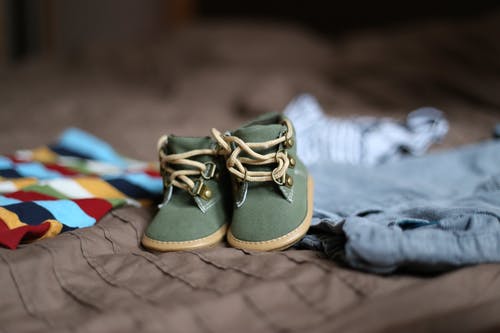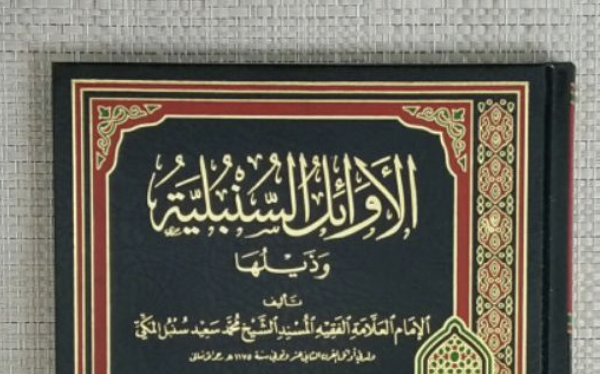Hadith related to Breastfeeding
Question: I have come across some offensive material and it has been causing me some problems. They quote this hadith
Aḥmad bin Ḥanbal:
ʿĀʾishah took that as a precedent for whichever men she wanted to be able to come to see her. She ordered daughters of her sisters and brothers to give milk to whichever men she wanted to be able to come in to see her. The rest of the wives of the Prophet ﷺ refused to let anyone come in to them by such nursing. They said, ‘No! By Allah! We think that what the Messenger of Allah ﷺ ordered Sahlah bint Suhayl to do was only an indulgence concerning the nursing of Salim alone. No! By Allah! No one will come in
upon us by such nursing!’
Footnote: Hadīth is ṣaḥīḥ (Authentic).
Source: Musnad Aḥmad bin Ḥanbal. Pg. # 192, H # 26208.
Can you help clear this up, some say this ḥadīth is disconnected etc?
Answer
بسم الله الرحمن الرحیم
The ḥadīth which you have mentioned in your question can be found in the Ṣaḥīḥ of Imām Muslim, the Sunans of Imāms Abū Dāwūd, Nasāʾī and Ibn Mājah, and the Musnad of Imām Aḥmad among others. Bukhārī has also recorded part of the ḥadīth.[1]
From the various narrations, we learn that Sālim was a slave but then was adopted as a son by Abū Ḥudhayfah (may Allah be pleased with him) and from then, Sālim was known as ‘Sālim the son of Abū Ḥudhayfah’. When Allah revealed the verse of Surah Aḥzāb instructing the Believers to attribute one another only to their biological fathers, the wife of Abū Ḥudhayfah, Sahlah bint Suhail (may Allah be pleased with her), came to the Prophet ﷺ and explained that Sālim was treated as their son and thus, would frequent their house without any restrictions. Now that Allah Almighty has revealed the verse and Sālim has become of age, Abū Ḥudhayfah is uncomfortable with Sālim’s visiting due to the rules of ḥijāb. In response, the Prophet ﷺ told her to give Sālim some of her breastmilk thereby causing milk relations. After she did this, she came back to the Prophet ﷺ and informed him that Abū Hudhayfah’s discomfort has also gone. A detailed version in Ṭabaqāt ibn Saʿd explains that this was done by Sahlah extracting a small amount, equal to the amount of one sip, into a cup, daily. This was done for five days, and Sālim would drink from that daily.[2]
While there is no debate on the authenticity of this ḥadīth, the fuqahāʾ have differed on whether this ruling is applicable to all or was it exclusive to the case of Sahlah and Sālim. The question is whether the milk relation between the male and the female can come into effect at any age of the male or only in the infancy of the male. The overwhelming majority of fuqahāʾ restrict the relation to the infancy of the male.[3] Abū Ḥanīfah allows the breastfeeding time two years and six months, while the other jurists allow only two years. Thus, if a boy drank the female’s milk after two years of age, or after two years and six months according to Abū Ḥanīfah, without having drank any milk prior to this, then he will not be considered the milk son of the female.
However, based on the ḥadīth of Sahlah and Sālim quoted above, the pure and chaste mother of the Believers, ʿĀʾishah (may Allah be pleased with her), held the opinion that milk relations can be effectuated at any age of the male. Moreover, Muslim has reported that when Umm Salamah (may Allah be pleased with her) questioned ʿĀʾishah (may Allah be pleased with her) about her position, she remarked: ‘do you not take a lesson from the Messenger of Allah (ﷺ) ?[4]
It can thus be realised that the practice of ʿĀʾishah (may Allah be pleased with her) was based on her understanding of the ḥadīth of Sahlah and Sālim (may Allah be pleased with him). As such, she cannot be accused of any wrongdoing as this was a juristic difference of opinion and her conclusion was based on what the Prophet ﷺ instructed Sahlah (may Allah be pleased with her) to do.
It is also pertinent to note that ʿĀʾishah (may Allah be pleased with her) was not alone in her verdict; rather the same opinion has been attributed to Ḥafṣah (may Allah be pleased with her). Abū Mūsā ‘l Ashʿarī (may Allah be pleased with him) also initially gave the same verdict but then later changed his opinion after being corrected by Ibn Masʿūd (may Allah be pleased with him). ʿUrwah ibn Zubair, ʿAṭāʾ ibn abī Rabāḥ, Layth ibn Saʿd, and Dāwūd aẓ Ẓāhīrī are also reported to have held the same opinion. Ibn Ḥazm also vehemently gave this verdict.[5]
Rather, although it has been disputed by Ibn ʿAbdil Barr al Mālikī in his book at-Tamhīd, this opinion has also been attributed to ʿAlī (may Allah be pleased with him). An incident has been related in the Muṣannaf of ʿAbdul Razzāq that a man asked ʿAlī (may Allah be pleased with him) about a woman whom he wishes to marry but had drunk some of her milk in medication while being an adult. ʿAlī said: ‘do not marry her’.[6]
As for the actual reason as to why ʿĀʾishah (may Allah be pleased with her) would practically allow this and instruct her sister and her nieces to extract milk and then feed certain males was most likely to facilitate ease in coming and going. As it is widely known, after the Prophet ﷺ left this world, until her death, ʿĀʾishah (may Allah be pleased with her) became a centre for learning and acquiring verdicts. Thus, many of the Companions and Followers would frequently visit her to consult her and learn from her.[7] Masrūq says: ‘I have seen the senior companions of the Messenger of Allah ﷺ asking her about the laws of inheritance’. Abū Musā ‘l Ashʿarī (may Allah be pleased with him) says: ‘Whenever we were confused on a matter, we asked ʿĀʾishah (may Allah be pleased with her) and found the answer’.[8] Dhahabī has said that 2,210 aḥādīth have been narrated from ʿĀʾishah (may Allah be pleased with her).[9]
Moreover, this practice of ʿĀʾishah (may Allah be pleased with her) was in common knowledge to other companions. Thus, to suggest that ʿĀʾishah (may Allah be pleased with her) allowed this for wrong reasons (we seek Allah’s refuge) is based purely on whims and desires.
In conclusion, the actual discussion is a juristic difference of opinion in whether the milk relations between a male and female can be effectuated in adulthood also. The vast majority of companions and jurists of the whole ummah are of the opinion that the milk relation can be effectuated only in infancy of the male, 24 months according to most, and 30 months according to Abū Ḥanīfah. In contrast, based on the direct ḥadīth of Sahlah and Sālim (may Allah be pleased with her), ʿĀʾishah (may Allah be pleased with her) and a few others opined that if an adult male drank the milk of a female (even his own wife) then he will become her milk-son. In view of this narration, ʿĀʾishah (may Allah be pleased with her) would allow certain males to visit her and not be restricted by the laws of ḥijāb.
We ask Allah Almighty to protect us from any misconceptions regarding the Prophet ﷺ and his blessed wives and family.
And Allah knows best
Ibrāhīm ibn Muḥammad
[1] روى مسلم: عن عائشة، قالت: جاءت سهلة بنت سهيل إلى النبي ﷺ، فقالت: يا رسول الله، إني أرى في وجه أبي حذيفة من دخول سالم وهو حليفه، فقال النبي : أرضعيه قالت: وكيف أرضعه؟ وهو رجل كبير، فتبسم رسول الله ﷺ وقال: قد علمت أنه رجل كبير
وروى البخاري عن عائشة ، زوج النبي ﷺ: أن أبا حذيفة، وكان ممن شهد بدرا مع رسول الله ﷺ، تبنى سالما، وأنكحه بنت أخيه هند بنت الوليد بن عتبة، وهو مولى لامرأة من الأنصار، كما تبنى رسول الله ﷺ زيدا وكان من تبنى رجلا في الجاهلية دعاه الناس إليه وورث من ميراثه، حتى أنزل الله تعالى: {ادعوهم لآبائهم} فجاءت سهلة النبي ” فذكر الحديث
[2] قال شيخنا العثماني: قال القاضي: لعلها حلبته، ثم شرب من غير أن يمس ثديها، ولا التقت بشرتاهما، وهذا الذي قاله القاضي حسن، ويحتمل أنه عفا عن مسه للحاجة، كما خص بالرضاعة مع الكبر، والله أعلم، كذا في شرح النووي. وقال ابن الهمام: ثم كيف جاز أن يباشر عورتها بشفتيه؟ فلعل المراد أن تحلب له شيئًا مقداره خمس رضعات فيشربه، وإلا فهو مشكل. كذا في فتح القدير: قال العبد الضعيف (القائل شيخنا العثماني) هذا الاحتمال متعين، وقد صرح به في رواية، وهي ما أخرجه ابن سعد قال: أخبرنا محمد بن عمر (يعنى الواقدي) حدثنا محمد بن عبد بن أخي الزهري، عن أبيه، قال: كان يحلب في مسعط أو إناء قدر رضعة، فيشربه سالم كل يوم خمسة أيام…فهذه الرواية قد صرحت بأنها حلبت له ولم ترضعه من ثديها. (تكملة فتح الملهم: 46/4)
[3] قال ابن عبد البر: وممن قال إن رضاعة الكبير ليس بشيء: عمر بن الخطاب وعلي بن أبي طالب وعبد الله بن مسعود وابن عمر وأبو هريرة وبن عباس وسائر أمهات المؤمنين غير عائشة وجمهور التابعين وجماعة فقهاء الأمصار منهم الليث ومالك وبن أبي ذئب وبن أبي ليلى وأبو حنيفة وأصحابه والشافعي وأحمد وإسحاق وأبو ثور وأبو عبيد والطبري (الاستذكار: 254/6)
قال العبد الضعيف: أما حفصة ، فقد نقل الطبري في تهذيب الآثار أن قولها مثل قول عائشة كذا في فتح الباري (149/9)
[4] روى مسلم عن زينب بنت أم سلمة، قالت: قالت أم سلمة، لعائشة، إنه يدخل عليك الغلام الأيفع، الذي ما أحب أن يدخل علي، قال: فقالت عائشة: أما لك في رسول الله أسوة؟ قالت: إن امرأة أبي حذيفة قالت: يا رسول الله، إن سالما يدخل علي وهو رجل، وفي نفس أبي حذيفة منه شيء، فقال رسول الله: أرضعيه حتى يدخل عليك
وروى أبو داود عن عائشة زوج النبي ، وأم سلمة، أن أبا حذيفة بن عتبة بن ربيعة بن عبد شمس، كان تبنى سالما وأنكحه ابنة أخيه هند بنت الوليد بن عتبة بن ربيعة وهو مولى لامرأة من الأنصار كما تبنى رسول الله ﷺ زيدا وكان من تبنى رجلا في الجاهلية دعاه الناس إليه وورث ميراثه حتى أنزل الله سبحانه وتعالى في ذلك {ادعوهم لآبائهم} إلى قوله {فإخوانكم في الدين ومواليكم} فردوا إلى آبائهم، فمن لم يعلم له أب كان مولى وأخا في الدين، فجاءت سهلة بنت سهيل بن عمرو القرشي، ثم العامري وهي امرأة أبي حذيفة، فقالت: يا رسول الله، إنا كنا نرى سالما ولدا، وكان يأوي معي ومع أبي حذيفة، في بيت واحد، ويراني فضلا، وقد أنزل الله عز وجل فيهم ما قد علمت فكيف ترى فيه؟ فقال لها النبي: أرضعيه فأرضعته خمس رضعات فكان بمنزلة ولدها من الرضاعة، فبذلك كانت عائشة تأمر بنات أخواتها وبنات إخوتها أن يرضعن من أحبت عائشة أن يراها ويدخل عليها، وإن كان كبيرا خمس رضعات، ثم يدخل عليها وأبت أم سلمة وسائر أزواج النبي أن يدخلن عليهن بتلك الرضاعة أحدا من الناس، حتى يرضع في المهد، وقلن لعائشة والله ما ندري لعلها كانت رخصة من النبي لسالم دون الناس
وروى النسائي عن عروة، قال: أبى سائر أزواج النبي أن يدخل عليهن بتلك الرضعة أحد من الناس يريد رضاعة الكبير، وقلن لعائشة: والله ما نرى الذي أمر رسول الله سهلة بنت سهيل، إلا رخصة في رضاعة سالم وحده من رسول الله ﷺ، والله لا يدخل علينا أحد بهذه الرضعة ولا يرانا
[5] قال ابن عبد البر: واختلف العلماء في ذلك كاختلاف أمهات المؤمنين فذهب الليث بن سعد إلى أن رضاعة الكبير تحرم كما تحرم رضاعة الصغير وهو قول عطاء بن أبي رباح وروى عن علي ولا يصح عنه والصحيح (عنه أن) لا رضاع بعد فطام وكان أبو موسى يفتي به ثم انصرف عنه إلى قول ابن مسعود وأما قول عطاء فذكر عبد الرزاق عن ابن جريج قال سمعت عطاء يسئل قال له رجل سقتني امرأة من لبنها بعد ما كنت رجلا كبيرا أفأنكحها قال لا قلت وذلك رأيك قال نعم قال عطاء كانت عائشة تأمر (به) بنات أخيها (التمهيد: 256/8)
وقال ابن حجر: لهذا عملت عائشة بذلك وحكاه النووي تبعا لابن الصباغ وغيره عن داود وفيه نظر وكذا نقل القرطبي عن داود أن رضاع الكبير يفيد رفع الاحتجاب منه ومال إلى هذا القول بن المواز من المالكية وفي نسبة ذلك لداود نظر فإن بن حزم ذكر عن داود أنه مع الجمهور وكذا نقل غيره من أهل الظاهر وهم أخبر بمذهب صاحبهم وإنما الذي نصر مذهب عائشة هذا وبالغ في ذلك هو بن حزم ونقله عن علي وهو من رواية الحارث الأعور عنه ولذلك ضعفه بن عبد البر. وقال عبد الرزاق عن بن جريج قال رجل لعطاء إن امرأة سقتني من لبنها بعد ما كبرت أفأنكحها قال لا قال بن جريج فقلت له هذا رأيك قال نعم كانت عائشة تأمر بذلك بنات أخيها وهو قول الليث بن سعد وقال بن عبد البر لم يختلف عنه في ذلك. قلت وذكر الطبري في تهذيب الآثار في مسند علي هذه المسألة وساق بإسناده الصحيح عن حفصة مثل قول عائشة وهو مما يخص به عموم قول أم سلمة أبى سائر أزواج النبي صلى الله عليه وسلم أن يدخلن عليهن بتلك الرضاعة أحدا أخرجه مسلم وغيره ونقله الطبري أيضا عن عبد الله بن الزبير والقاسم بن محمد وعروة في آخرين وفيه تعقب على القرطبي حيث خص الجواز بعد عائشة بداود (فتح الباري: 149/9)
وقال ابن حزم: ورضاع الكبير محرم ولو أنه شيخ، يحرم كما يحرم رضاع الصغير ولا فرق (المحلى: 202/10)
[6] عبد الرزاق قال: أخبرنا ابن جريج قال: أخبرني عبد الكريم، أن سالم بن أبي الجعد، مولى الأشجعي أخبره، ومجاهد، أن أباه أخبره، أنه سأل عليا، فقال: إني أردت أن أتزوج امرأة قد سقتني من لبنها، وأنا كبير تداويت، قال علي: «لا تنكحها» ونهاه عنها (مصنف عبد الرزاق: 461/7)
[7] قال ابن حجر: وقال أبو الضّحى، عن مسروق: رأيت مشيخة أصحاب رسول اللَّه الأكابر يسألونها عن الفرائض. وقال عطاء بن أبي رباح: كانت عائشة أفقه الناس، وأعلم الناس، وأحسن الناس رأيا في العامة.
وقال هشام بن عروة، عن أبيه: ما رأيت أحدا أعلم بفقه ولا بطب ولا بشعر من عائشة. وقال الزهري: لو جمع علم عائشة إلى علم جميع أمهات المؤمنين وعلم جميع النساء لكان علم عائشة أفضل (الإصابة في تمييز الصحابة: 233/8)
[8] روى الترمذي عن أبي موسى الأشعري قال: ما أشكل علينا أمر فسألنا عنه عائشة إلا وجدنا عندها فيه علما
[9] قال الذهبي: مسند عائشة يبلغ ألفين ومائتين وعشرة أحاديث، اتفق لها البخاري ومسلم على: مائة وأربعة وسبعين حديثا، وانفرد البخاري بأربعة وخمسين (سير أعلام النبلاء: 139/2)





